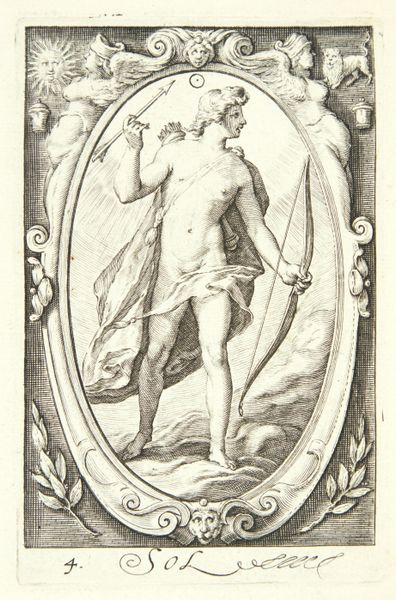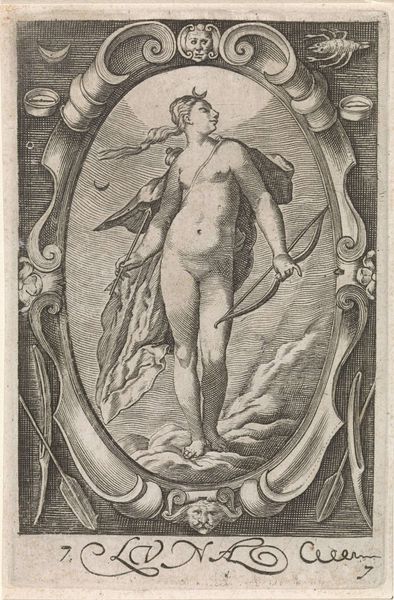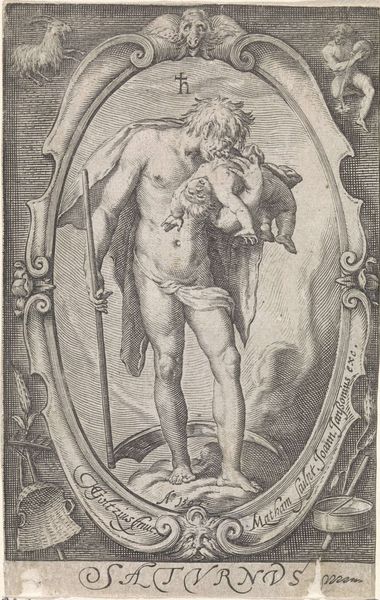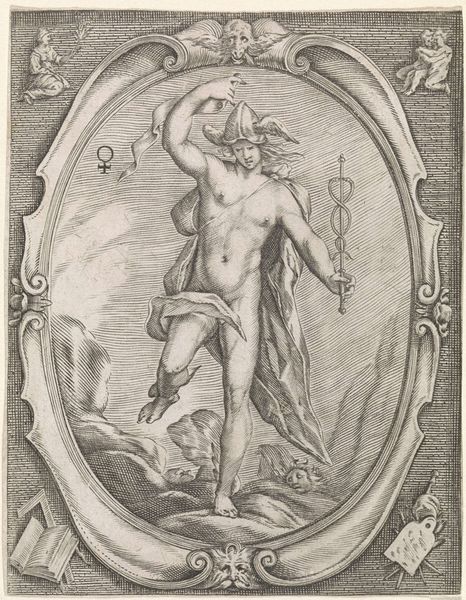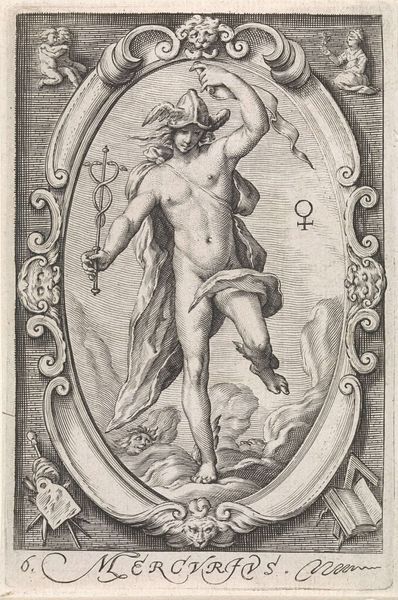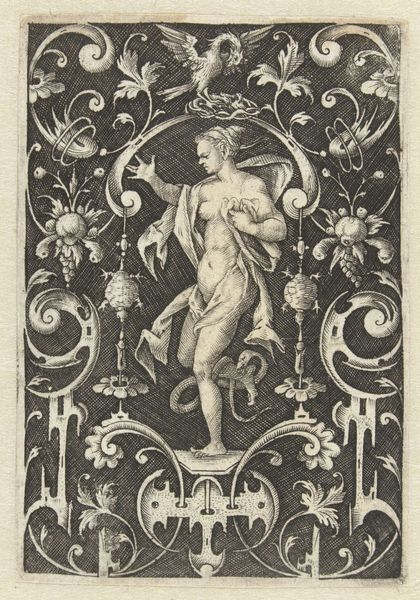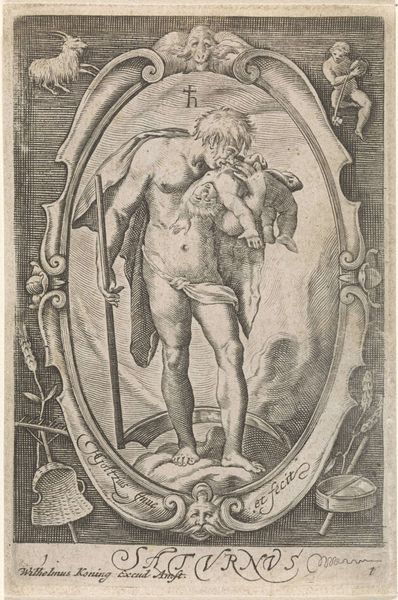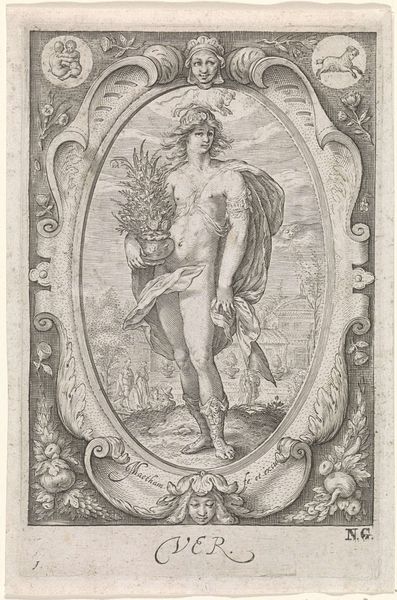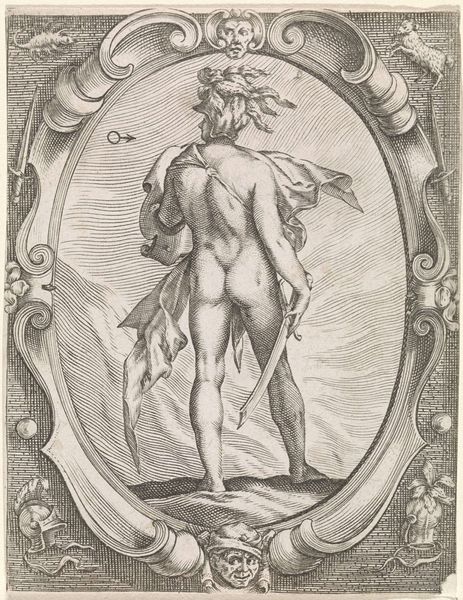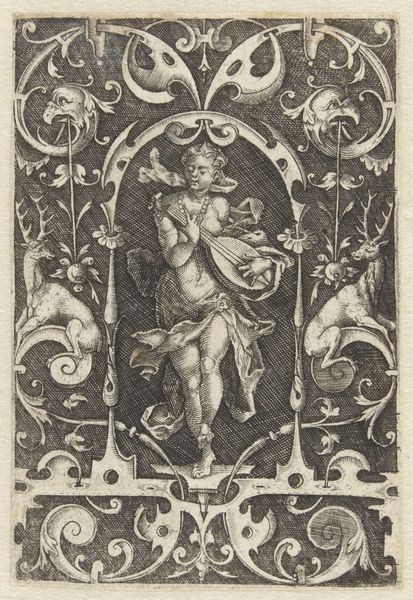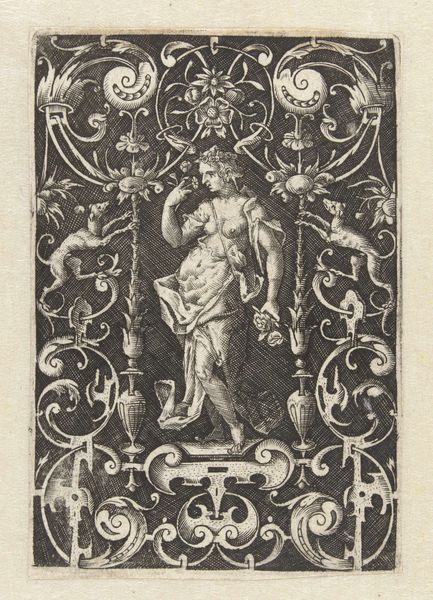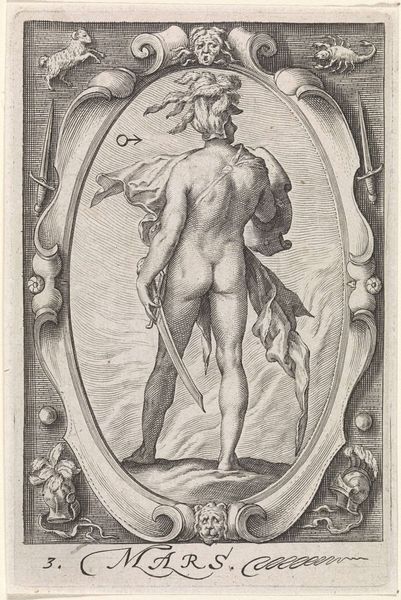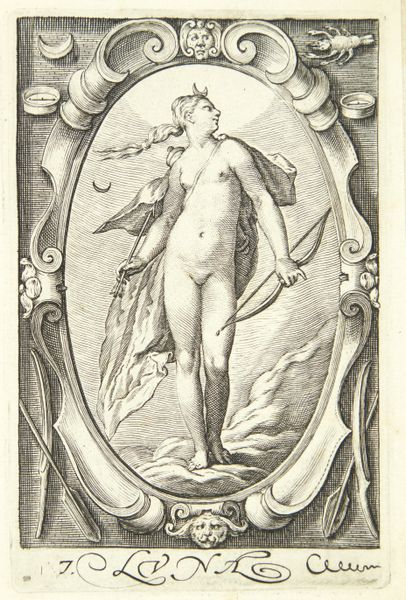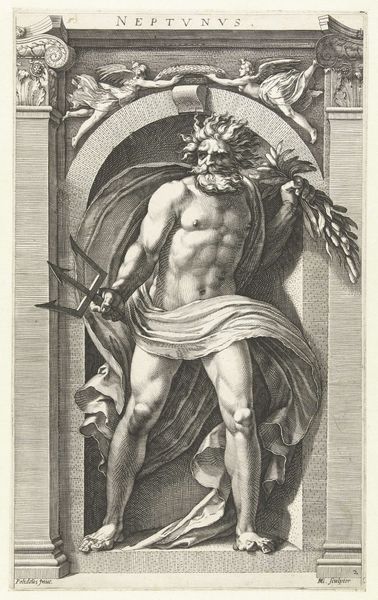
print, engraving
#
allegory
#
baroque
#
pen drawing
# print
#
old engraving style
#
figuration
#
line
#
pen work
#
history-painting
#
engraving
Dimensions: height 118 mm, width 77 mm
Copyright: Rijks Museum: Open Domain
Editor: So this engraving, titled "Zon (Appolo)," likely made between 1597 and 1732, depicts the god Apollo framed within an ornate oval. It has such a formal, almost theatrical feel. How do you interpret this work, especially considering its historical context? Curator: Considering that the engraving appropriates from Baroque traditions, let's examine how the depiction of Apollo reinforces power structures of the era. What kind of commentary might this be making about rulers and their self-fashioning through allegorical representation? Editor: That's a fascinating perspective. I hadn’t really thought about it that way, I was drawn to how static it is, how devoid of true motion for a scene referencing the Sun god. Curator: Consider the role that gender plays within visual grammars like this. Apollo, often rendered as an ideal of masculine beauty, becomes a site for exploring power dynamics. How do societal expectations of gender and beauty contribute to legitimizing certain forms of authority? What impact did these established systems of visual language have on the way gender and authority were understood and challenged? Editor: I see what you mean. The visual language, while seemingly celebrating Apollo, is actually solidifying and reinforcing hierarchical social structures of the time through this idealised figure. Curator: Exactly! And we can even take that analysis further when considering whose stories get told, and from what perspective. Engravings like this one weren't passive documents. They actively shaped the dominant narrative. Understanding that helps us understand visual culture. Editor: That’s really interesting – it makes me see the engraving as less of a straightforward glorification and more of a complex statement about power and societal ideals. Thank you for helping me see all of that! Curator: It is my pleasure! Thank you for considering intersectionality!
Comments
No comments
Be the first to comment and join the conversation on the ultimate creative platform.
